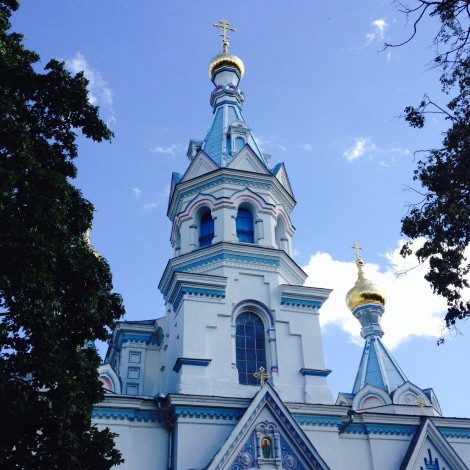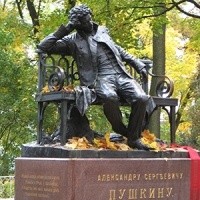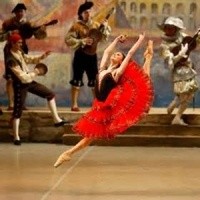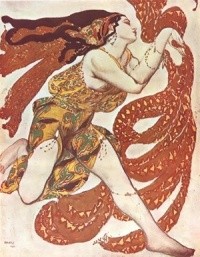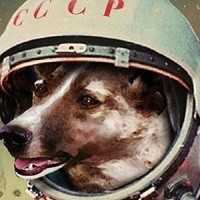A student coming to Mount Holyoke with no background in Russian language should enroll in RES-101 and RES-102, a yearlong introduction to Russian language and culture.
Students who have previously studied Russian and plan to elect Russian language should consult with the department for individual placement.
As listed, courses on Russian history or literature and culture may be used to satisfy the Humanities distribution requirement, while courses on Russian and Eurasian Politics satisfy the Social Science distribution requirement.
RES-101 Elementary Russian
The four-skills (listening, speaking, reading, and writing) introduction to the Russian Language with the focus on communicative skills development. Major structural topics include pronunciation and intonation, all six cases, basic conjugation patterns, and verbal aspect. By the end of the course the students will be able to initiate and sustain conversation on basic topics, write short compositions, read short authentic texts and comprehend their meaning, develop an understanding of the Russian culture through watching films and listening to songs.
RES-102 Elementary Russian
Continuation of RES-101. A four-skills course, with increasing emphasis on reading and writing, that completes the study of basic grammar. Major topics include: predicting conjugation patterns, un-prefixed and prefixed verbs of motion, complex sentences, time expressions, and strategies of vocabulary building. Students watch Russian films, read and discuss authentic texts.
RES-201 Intermediate Russian I
In-depth review of grammar topics and expansion of vocabulary with the goal of developing communicative proficiency. Readings include short stories, poetry, and newspaper articles. Students watch Russian films and discuss them orally and in writing. Classes are conducted mostly in Russian.
RES-202 Intermediate Russian II
Emphasis on increasing active command of grammar while focusing on conversational topics. Readings include poetry, short stories, and magazine and newspaper articles. Students watch and discuss Russian films. Classes are conducted mostly in Russian.
RES-309 Literary Translation from Russian: A Seminar Workshop
Translation practice and theory. Poetry and prose. Participants will undertake a joint project selected by the instructor, as well as texts of their own choosing. Comparative consideration of the work of published translators.
RES-210 Great Books: The Literature of Nineteenth-Century Russia
In no other culture has literature occupied the central role it enjoyed in nineteenth-century Russia. Political, social, and historical constraints propelled Russian writers into the roles of witness, prophet, and sage. Yet, far from being limited to the vast, dark 'Big Question' novels of legend, Russian literature offers much humor, lyricism, and fantasy. We will focus on the Russian novel as a reaction to western European forms of narrative and consider the recurring pattern of the strong heroine and the weak hero. Authors will include: Pushkin, Lermontov, Gogol, Turgenev, Tolstoy, Dostoevsky, and Chekhov.
RES-211 Topics in Twentieth-Century Russian Literature
Topics in Twentieth-Century Russian Literature provide students with an intensive study of major writers, themes, and paradigm shifts in Russian literature during this turbulent century.
RES-211CA Topics in Twentieth-Century Russian Literature: 'Russophone Worlds of Siberia and Central Asia'
In the 1920s, the Soviet Union laid claim to a landmass encompassing much of Eastern Europe, the circumpolar Arctic, and Central Asia. In engaging the populations that occupied this stretch of Eurasia, Soviet power observed a twofold approach: promoting ethnic minorities' and Indigenous peoples' national cultures, while simultaneously centering Russian as the shared tongue of an international socialist project. Our course will survey this project's complex, contradictory cultural artifacts -- both colonial and decolonial in their aims -- with a particular focus on modern Siberia and Central Asia. We will read, in English translation, novels, poems, and other texts by Russophone authors from Kyrgyzstan, Uzbekistan, north/eastern Siberia, and other spaces.
RES-211MM Topics in Twentieth-Century Russian Literature: 'Diabolic Carnival: Bulgakov's Master and Margarita and Its Contexts'
Mephistopheles in Moscow? The Gospel retold? At turns both wildly comic and metaphysically profound, Bulgakov's novel has been a cult classic since its unexpected discovery in 1967. This course will consider Bulgakov's masterpiece together with some of its literary, historical, and social contexts. Additional readings from Goethe, Gogol, E.T.A.Hoffman, Akhmatova, and others.
RES-213 War and Peace
We will be engaged in a close reading of a translation of Tolstoy's epic novel War and Peace. Tolstoy's sweeping account of men and women caught up in Russia's desperate struggle to survive against the onslaught of Napoleon's army is often considered among the greatest novels. We will focus on Tolstoy's literary strategies, philosophy, and historical contexts.
RES-215 Dostoevsky and the Problem of Evil: The Brothers Karamazov
Perhaps no other novelist has delved as deeply into the psychological and metaphysical dimensions of evil as the Russian novelist Fyodor Dostoevsky. This course will be devoted to a close reading of Dostoevsky's landmark novel of murderous passion and parricide, The Brothers Karamazov. Why should crime and transgression be a privileged avenue of access into the human interior? How is psychology tied to the metaphysical aspect of human existence? What are the sources of evil--and redemption?
RES-231FA Anna Karenina and Contexts: 'Tolstoy on Love, Death, and Family Life'
Anna Karenina (1873) is one of a series of important works Tolstoy wrote pondering love, death, the nature of happiness, and the foundations of family life. Our reading of Anna Karenina will be the centerpiece of this course which will also include works ranging from Childhood (1852) to The Kreutzer Sonata (1889), which shocked and repelled readers with its unsparing depictions of human sexuality and murderous jealousy. Film versions of works will be screened.
RES-235 The Strange World of Nikolai Gogol
Gogol was a strange creature, but genius is always strange." - Vladimir Nabokov. Nikolai Gogol was one of Russia's greatest and most enigmatic writers. Revered by Dostoevsky, he created a literary universe that has lost none of its original power despite the passage of time. This course will trace the development of Gogol's genius from his early Ukrainian stories, through his tales of St. Petersburg, to his comic masterpiece Dead Souls. Special attention will be paid to Gogol's deployment of the comic, fantastic and grotesque to render the reality of tsarist Russia.
RES-240 Contemporary Russian Politics: From Lenin to Putin
Russia was transformed by communist revolution into a global superpower that challenged the dominant ideologies of liberalism and nationalism. It became a powerful alternative to capitalism. In 1991, this imperial state collapsed and underwent an economic, political, and cultural revolution. What explains the Soviet Union's success for 70 years and its demise in 1991? What sort of country is Russia as it enters the twenty-first century? Is it a democracy? How has Russia's transformation affected ordinary people and Russia's relationship to the West?
RES-244 Topics in Russian and Eurasian History
RES-344 Gender, Sexuality, and Communism
Using the frameworks of transnational and anticolonial feminisms, this course explores the genealogies, constellations, and contestations of feminist thought in the post-Soviet world. We will consider its unique formations in Eastern Europe and Eurasia, focusing especially on "peripheral" perspectives, such as Ukraine, Belarus, and Kazakhstan. Taking an interdisciplinary approach, students will engage with narrative, historical, archival, and ethnographic sources, giving attention to the relationship between gendered subjectivity and state practices. Topics may include: cultures of dissent, women's movements, queer intimacies and LGBTQ+ rights, and transnational collaborations.


